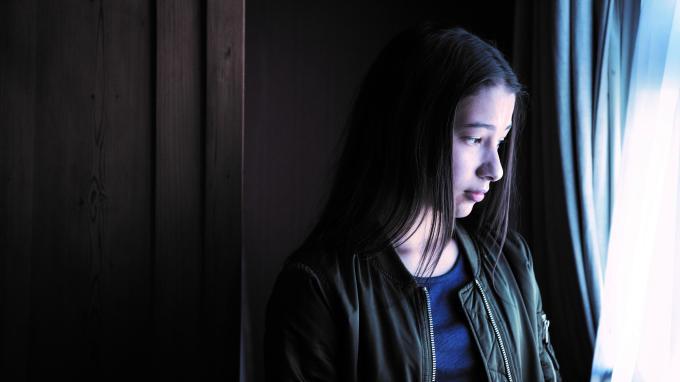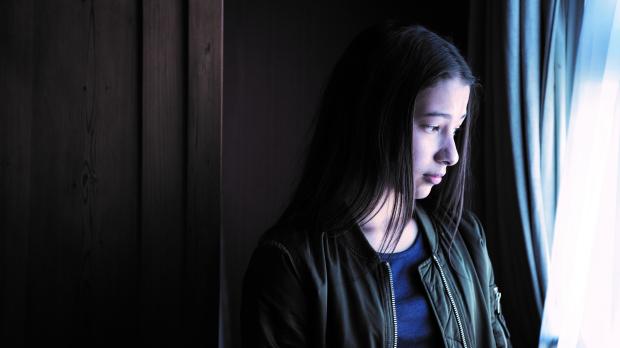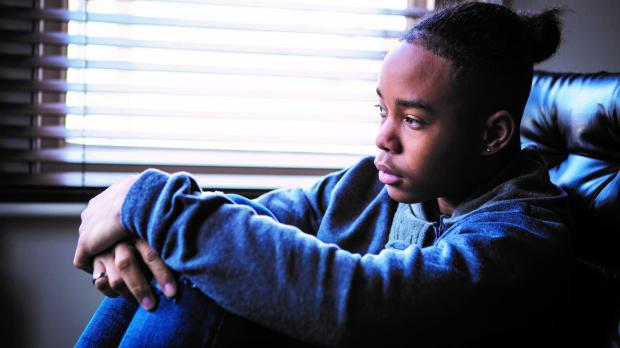We are one of the leading organisations directly supporting children who have experienced trafficking. Learn more about what child trafficking is from our experts who work in this area.
What is human trafficking?
Trafficking is the movement of a person from one place to another for the purpose of exploitation: using them for somebody else’s gain. Modern slavery is a common term for all kinds of slavery, trafficking and exploitation.
Children can be smuggled or trafficked into the UK from many parts of the world to be exploited, however some children are trafficked by being moved out of the UK, in and around the UK and even from house to house in their local area. They are often moved away from their family and friends so that they can be isolated and controlled by traffickers.
The International Labour Organisation estimated that 50 million people were living in modern slavery in 2021. In 2022 7019 children were identified as trafficked in England and Wales (National Referral Mechanism Statistics, 2022).
Children who are trafficked for the purpose of exploitation, may not always recognise that what is happening to them is trafficking, or may possibly be too afraid to seek help due to a threat of harm towards them, or in some cases to their friends and family.
Children need intensive support to recover from such experiences and to keep them safe in the future.
Why are children trafficked?
Children are often trafficked and exploited for forced labour, criminal exploitation, sexual exploitation, domestic servitude and organ harvesting. Traffickers will often trick children with offers of legitimate work or an opportunity to move somewhere safer.
All children are at risk of trafficking. However those seeking asylum, fleeing danger or moving away from a lack of opportunities where they live may be more likely to be targeted. Barnardo’s has a long history of supporting the children who need us the most, this includes those seeking sanctuary in the UK who have suffered trauma, exploitation and trafficking before they arrive here. We work closely with other partners to ensure all children who seek refuge in the UK are welcome and protected from harm.
What are the signs and indicators that someone has been trafficked or is a victim of modern slavery?
It can be very difficult to tell if someone has experienced trafficking or is living in modern slavery. However, it’s important to learn some possible red flags that could indicate a child is being exploited or trafficked. Some possible signs could be:
Physical Signs
-
injury or abuse, such as bruising, burns or fractures
-
appearing malnourished, tired or unwell
-
poor hygiene, indicating a lack of care or control
-
ongoing or frequent illnesses or infections
-
forced pregnancy, miscarriage or abortion
-
living or working in hazardous conditions
Behavioural Signs
-
appearing anxious, distressed, depressed, or emotionally numb
-
avoiding eye contact, appearing fearful, allowing others to speak on their behalf or not speaking freely
-
being secretive or isolated from other children
-
not attending school or regularly skipping classes
-
behaving in a fearful or subservient manner
-
being accompanied by a controlling or abusive adult
Legal/Documentation Signs
-
carrying false identification documents or having none at all
-
no control over their personal documents or money
-
working without legal permission or below the minimum wage
-
moving frequently or being unwilling to disclose their location or living conditions
-
not having access to their bank account, passport, visa or legal documentation
-
being in contact with known criminals or traffickers
Children who have been trafficked may be being criminally or sexually exploited, so it’s important to understand possible signs and indicators for those types of exploitation too.
How do I report child trafficking?
If you suspect a child may be trafficked, call the Modern Slavery Helpline on 0800 012 1700.
If the child is in immediate danger phone 999 immediately and let the operator know that there is a potential that they are being trafficked.
You should also make a safeguarding referral to your local authority. Details of how to do this will be on your city, county or district council's website.
If the child you are concerned about lives or has links to Wales / Cymru, East Midlands, West Midlands Combined Authorities, Bedfordshire, Gloucestershire (including Bristol), Warwickshire, all London Boroughs, Hampshire and the Isle of Wight, Kent, Surrey, Essex, Greater Manchester, North & West Yorkshire, Lancashire or Merseyside, please submit an online ICTG trafficking referral form.
The Home Office page about the Independent Child Trafficking Guardians details the guidance around the ICTG Service.
You can also contact our 24/7 support line on 0800 043 4303 to talk through the concerns you have before putting in a referral.
How do we help children affected by trafficking and exploitation?
Barnardo’s is one of the leading organisations in the UK to provide direct, specialist support to trafficked children, helping them cope with the experience and emotional trauma.
Our specialist support workers help them to understand what is happening with social care services, the police and immigration – in ways that they can understand.
We run specialist Independent Child Trafficking Guardianship Service (ICTGS) services in Wales / Cymru, East Midlands, West Midlands Combined Authorities, Bedfordshire, Gloucestershire (including Bristol), Warwickshire, all London Boroughs, Hampshire and the Isle of Wight, Kent, Surrey, Essex, Greater Manchester, North & West Yorkshire, Lancashire & Merseyside that:
-
build trusting relationships with trafficked children to help them build a positive future
-
help children navigate the criminal justice, immigration and social care systems
-
give practical support, such as help with housing, medical needs and education
-
give emotional and psychological support
-
train professionals working with children so they can spot the signs of trafficking and know how to support trafficked children

Amari's story
Read about Amari’s experience and how she was supported by Barnardo's.

Child sexual abuse and exploitation
Children who have been trafficked are more at risk of sexual abuse and exploitation. Find out the signs and what we do to support children affected by sexual abuse.

Criminal exploitation of children
Children who have been trafficked are more at risk of being exploited by criminals and coerced into committing crime. Find out the signs and what we do to support children who've been exploited.



